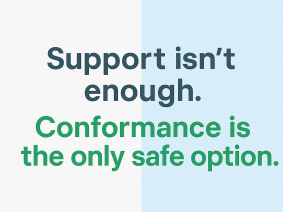
5 Ways Technology is Changing the Face of HR
With ground-breaking HR technology solutions all around us, we’re seeing a tech boom that is fundamentally reshaping the way we work — and how we think about HR. Some of the most interesting — and disruptive — examples are powered by artificial intelligence and automation. AI and machine learning are opening the door to a whole new world of possibility for the human capital space. Research shows that more than half of HR managers feel AI will become a regular part of HR within five years.
1. AI Is Making Recruitment Smarter
Recruiting new hires is a time-consuming and costly process, but thanks to automation and AI it’s getting easier to find ‘skilled’ people together with ‘suitable’ people. AI-enabled suitability screening robot interviewers, like Cleard Life’s Stephanie, now use government-led standardised protocols to reduce the risk of a bad hire and the threat of a malicious trusted insider wreaking havoc and harming your reputation. For a long time, Recruiters have only been able to quantify the competence of the candidate, not their character. This has changed and the advancement now leaves the recruitment process much smarter as a result.
2. Compliance Is More Efficient and Sophisticated
Staying compliant has often been a major challenge for HR teams. Laws and regulations are constantly changing and often require vast amounts of paperwork and information. With the recently declassified Australian Government Personnel Security Protocols (such as the whole-of-person protocol) any organisation can now easily adopt employment screening best methods and practice, compliance and duty of care.
3. Analytics Drive Better Hiring Decisions
Technology has enhanced the ability to standardise what a ‘unsuitable’ candidate looks like. Machine learning algorithms have analysed thousands of unsuitable candidates, which means the systems can quantitatively represent character traits of honesty, trustworthy, tolerance, maturity, loyalty and resilience in a meaningful way. Vetting analytics, therefore, has semi-automated and streamlined the employment background screening process and eliminated a lot of unnecessary steps so that better whole-of-person hiring decisions can be made.
4. Better Analytics Boosts Diversity and Inclusion
AI and ML helps to reduces the cognitive bias that are present in human decision making – especially as it relates to soft skills like character assessments. At last count there are more than 188 biases that could adversely impact the outcome. McKinsey & Co.’s 2017 Diversity Matters II report says there’s a positive correlation between a more ethnically and gender-diverse leadership team and an increase in profits.
5. A More Strategic Role for HR
HR’s role as an administrative function will shift to become a strategic advantage for the organisation. As the HR department embrace enabling technologies that simplify complex matters and speeds up traditionally slow processes, its strategic impact on the organisation will include reputation management – and help to create and lead a safe, secure and successful workplace by hiring excellent staff fast.
__________________________________________________
Read more:
If your industry membership has a reputation to uphold, then include us into your application process. Read more here.
Small Business Owner: Legitimately dig in to a Candidate’s past without fear of anti-discrimination, or bias. Read more here .
Existing Employees: Vet them as part of the annual personal conduct review. Read more here.
Pre-employment: Screen using a third party, for compliance, due diligence. Read more here.
Inspired by https://talentculture.com/5-ways-technology-is-changing-the-face-of-hr/






